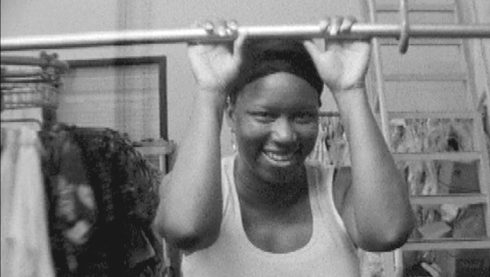Experimental/ Documentary
Showing @ Filmhouse 3, 21 June @ 17:55 & 23 June 19:45
Kevin Jerome Everson / United States of America / 2011 / 71 mins
Very few of us really know where our processions truly come from, like the fact that the aluminum used to make many of our MacBook pros comes from mines in India, the operation of which causes segregation, saturation of the land and robbing locals of their natural resources. It won’t stop us using them they’re too well made and joyous to touch. The point is, the labour aspect of what goes into our existence has slowly fallen away, we have become alienated from the processes that allow us to lead comfortable middle-class lives in our Western bubble and undoubtedly if David Cameron had to scrub toilets on 12 hr shifts for minimum wage or like the stars of Kevin Jerome Everson’s latest documentary Quality Control do the same thing day in day out for years on end, he’d have a very different opinion on how to run this country.
Quality Control is a rare film, the only comparison stylistically, aside from Everson’s other films, being Our Daily Bread . Shot on striking, degrading 16mm film with excruciatingly long single takes of employees at a dry cleaners facility in Pritchard, Alabama, Quality Control sits passive and simply observes the workers and the machinery, cutting out the middle man and forcing us to endure the monotony of what these people do for us to have a nicely pressed shirt. Quality Control isn’t for the fainthearted, with no build of rhythm or the hypnotic power of films like Our Daily Bread which hooks you, this film certainly leaves you with an image you can easily zone out on, but if you don’t, the rewards are great. It’s not so much about impoverished workers or even massively about he socio-economic status of the Afro-Caribbean people in the picture and the alienated worker, instead you become engrossed and consumed by the details of the work: the meticulous nature of the employees with every garment they attend to is Quality Control‘s hook. In a job where cutting corners is futile, the attention to the produce is what mesmerises here. However, our desire to see and learn from documentaries that expose some kind of bigger social commentary like the works of Adam Curtis or Errol Morris does fight against this quiet and passive observation: just let yourself drift into their life and to a certain extent ignore the bigger social questions, you’ll easily become immersed in this snap-shot.
